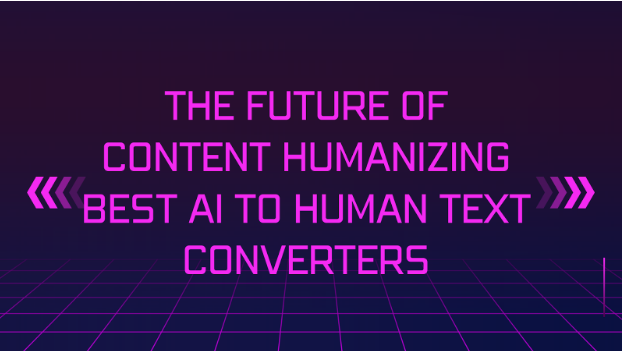If you’re intrigued by the world of virtual reality (VR) and the limitless possibilities it offers, you’re not alone. VR technology has been on an explosive trajectory, transporting users into captivating alternate realities through the simple act of donning a VR headset. The canvas of experiences within the realm of VR seems boundless, continually expanding with new dimensions and interactions. As the demand for VR development grows, a parallel emergence of cutting-edge tools and libraries has taken place, catering to the evolving needs of this technology. With businesses increasingly setting their sights on the virtual reality frontier, the role of VR programming experts has become indispensable. In this comprehensive article, we delve into the cream of the crop—the top 10 programming languages that stand as the cornerstone for developing immersive VR applications.
1. C++: Pioneering the Virtual Frontier
As one of the most versatile high-level programming languages, C++ holds the crown for constructing sprawling console and Windows games. Its scalability knows no bounds, making it a formidable choice for both modest and grand gaming projects alike. A remarkable trait of C++ is its platform-agnostic nature, allowing effortless portability between diverse operating systems. The likes of gaming giants like “The Witcher 3,” “Dark Souls,” “Elder Scrolls V: Skyrim,” “Player Unknown’s Battlegrounds (PUBG),” and “Fortnite” have all sprung to life with the prowess of C++. It stands tall among the elite as one of the top 10 best programming languages fueling the creation of VR marvels.
2. JAVA: Crafting Universes with Code
Emerging onto the programming landscape in 1995, Java swiftly etched its name among the finest object-oriented programming languages. Striving for minimal dependencies from its inception, Java differentiated itself remarkably from its contemporaries. A testament to its supremacy is its ability to empower game developers to craft masterpieces for a multitude of platforms, including the ever-expanding metaverse. In the gaming arena of 2021, Java remains an undisputed heavyweight, fostering titles such as “Mission Impossible III,” “Minecraft,” “FIFA 11,” “Ferrari GT 3: World Track,” and beyond.
3. C#: Forging New Realities
Embedded in the heart of Unity, C# assumes the mantle of the programming language for coding, while C++ lies at the core of the engine. Renowned for its prowess in the Windows and Xbox gaming realms, C# reigns supreme for metaverse endeavors. Epitomizing its potential are iconic games like “Pokemon Go” and “Super Mario Run.” It holds its head high among the crème de la crème, securing its place as one of the elite top 10 programming languages for driving the VR application revolution.
4. HTML: Where Versatility Meets Gaming
HTML, revered for its cross-platform and cross-browser capabilities, emerges as a favored terrain for constructing applications and games. Its versatility extends to its seamless integration with JavaScript, a dynamic duo for innovative game development. A noteworthy facet of HTML is its gentle learning curve, requiring no arduous dive into intricate algorithms. This quality has propelled it to be a frontrunner among the toolkit choices of game designers.
5. CUDA-C: Elevating Realism in Gaming
Elevating the gaming experience to new heights, CUDA-C emerges as a powerhouse programming language for desktop game developers. With its CUDA cores enhancing visual fidelity and rendering lifelike 3D vistas, CUDA-C is the go-to for creators aiming to amplify realism. Witness the transformation of your game’s visuals, as lighting, colors, and textures coalesce seamlessly. Standing tall within the top 10, CUDA-C empowers the creation of remarkable VR applications.
6. Lua: Lightweight Marvel of Gaming
Touting a featherweight profile, Lua makes a significant imprint in the gaming universe, securing the sixth spot in the pantheon of top 10 programming languages. Its cross-platform scripting prowess has earned it admiration within the gaming domain. Its user-friendly syntax has made it a sought-after tool for game engines like Gideros mobile, Corona SDK, and CryEngine. Countless gaming marvels, from “Age of Conan” to “American Girl,” “Angry Birds,” and “Aquaria,” bear testimony to Lua’s impact.
7. Python: The Unrivalled Game-Changer
When it comes to user-friendliness and adaptability, Python claims an unparalleled throne. Favored by game developers, it harnesses the Pygame framework to expedite game prototyping. With its adeptness, Python catalyzes the birth of gaming wonders, earning a prominent spot as one of the best programming languages for gaming ventures.
8. JavaScript: Shaping Interactive Realities
JavaScript, a cornerstone of web development, emerges as a pivotal player in the surge of online gaming. As the digital landscape tilts towards a web-driven economy, JavaScript takes center stage in sculpting interactive gaming projects. Undoubtedly, it’s among the top programming languages redefining the realm of gaming.
9. Swift: Navigating the Gaming Odyssey
For gaming enthusiasts, Swift stands as an enticing option. Developers are captivated by its innovative features, employing them to craft exceptional games. The toolkit provided by SpriteKit equips developers with the expertise to animate, simulate physics, orchestrate animations, collisions, and build captivating UI elements. Embarking on a gaming journey with Swift propels it into the top 10 programming languages roster, seamlessly blending with the VR application domain.
10. CSS3: Unleashing Visual Grandeur
Cascading Style Sheets (CSS) propels visual aesthetics to new heights. As a style sheet language, it imbues life into the presentation of documents, weaving a visually pleasing tapestry. CSS3, the evolutionary successor, extends its grasp over presentation, synergizing harmoniously with HTML5 to deliver the final rendered canvas. As CSS orchestrates style, JavaScript spearheads dynamics, converging to shape a cohesive, immersive experience.







Leave a Reply